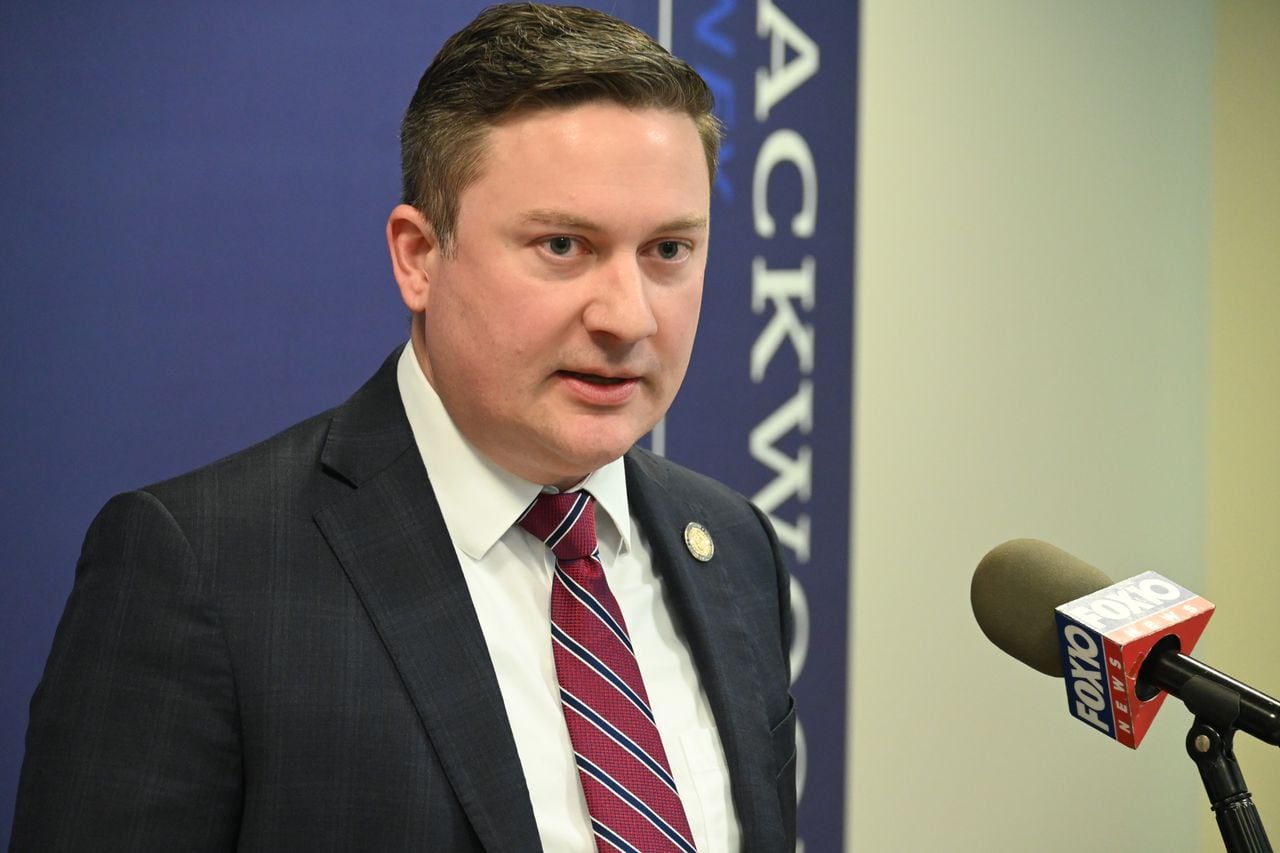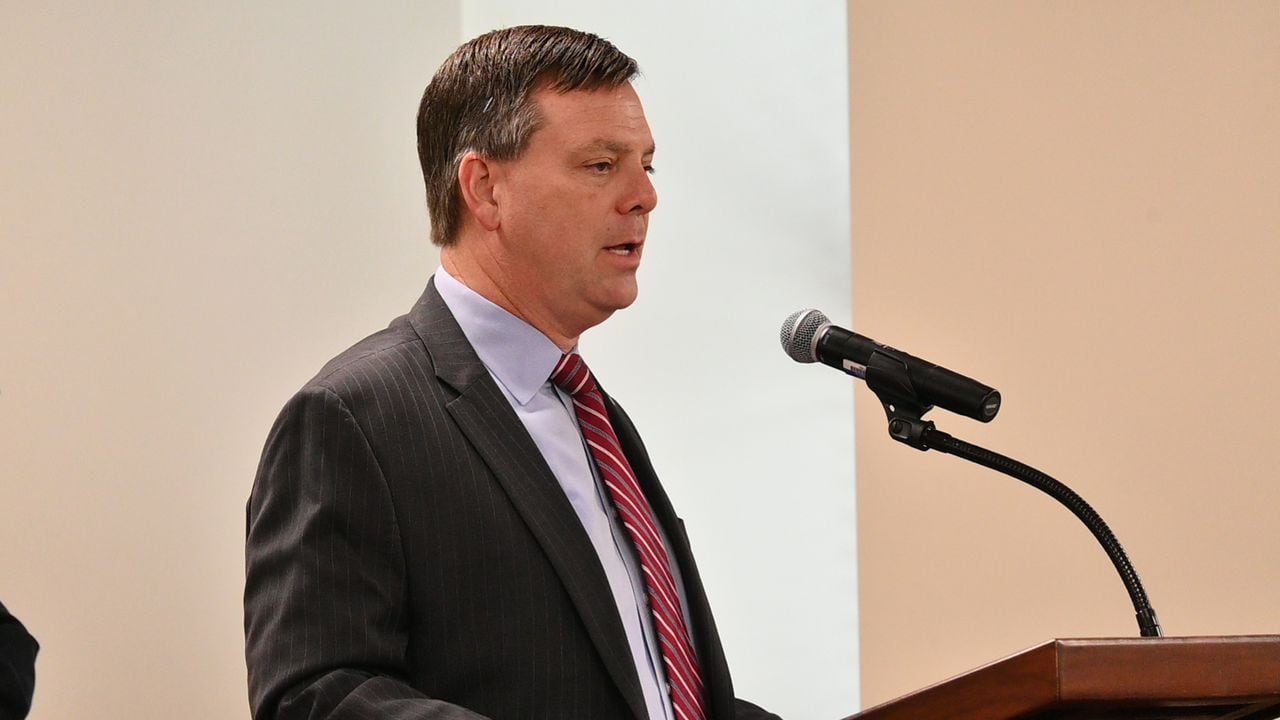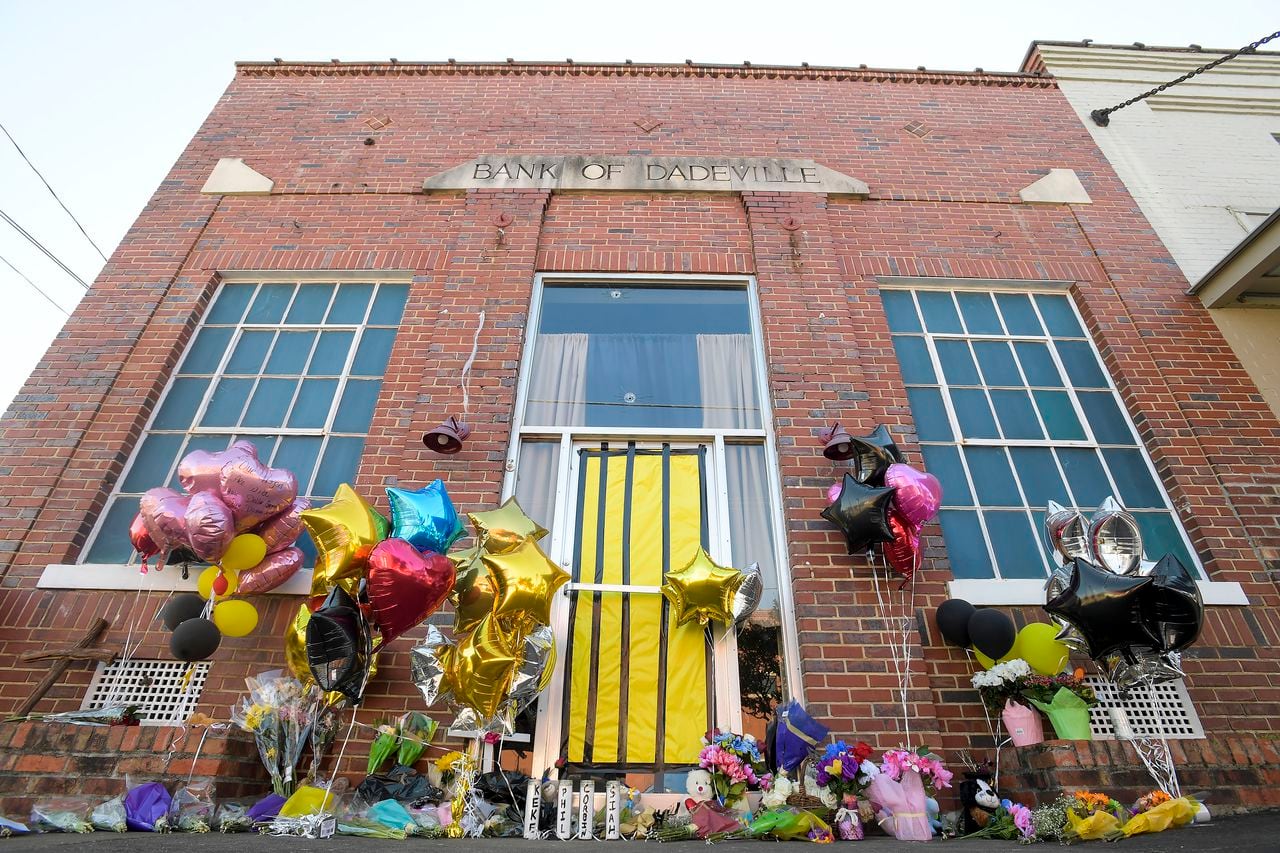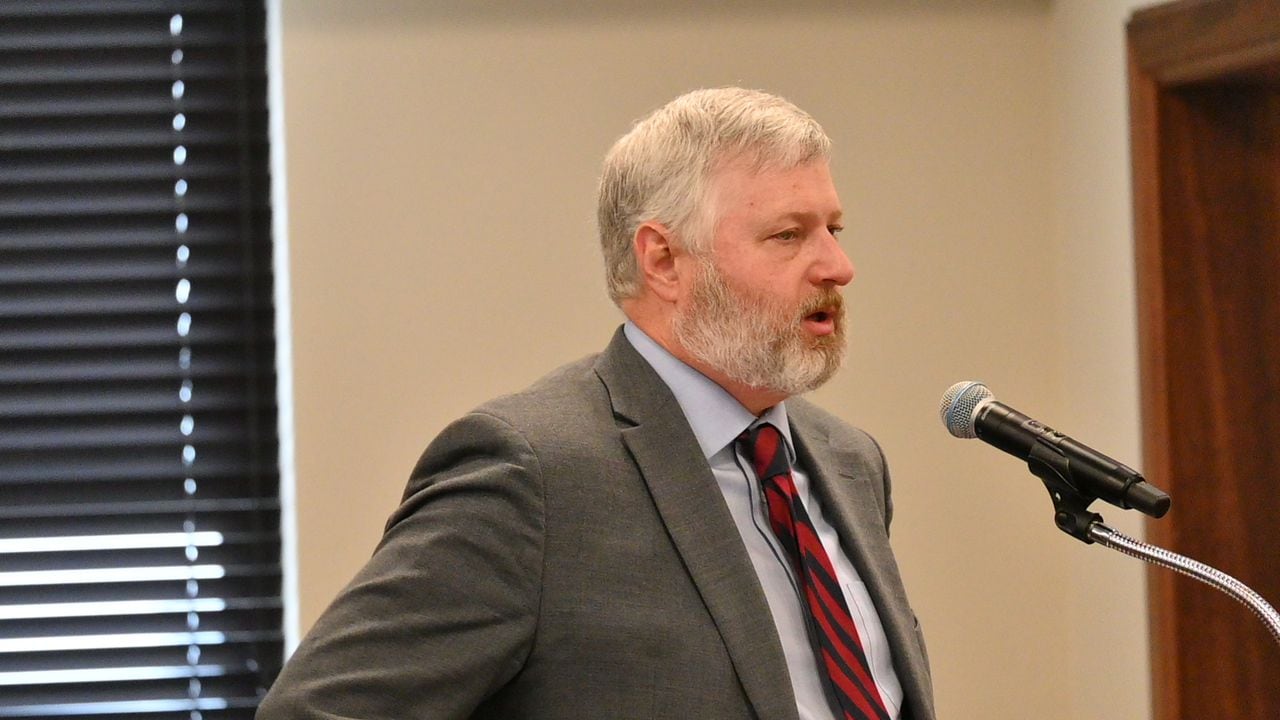How a school shooting sparked calls for dismantling Alabama law shielding juvenile criminals
The 16-year-old girl who fired a handgun inside the hallway of LeFlore High School Tuesday in Mobile, was arrested on multiple felony charges and will be tried as an adult.
But her name hasn’t been released, despite allegations that she shot and injured two people during a violent confrontation that sparked a manhunt and sent panic through Mobile.
“We can’t release it,” said Mobile County District Attorney Keith Blackwood, during a news conference Wednesday. “The press can’t release it even if you know it. It’s because of a fairly new statute that I don’t believe is a good one.”
Indeed, an under-the-radar juvenile confidentiality bill passed into law in 2021 by the Alabama Legislature and signed by Gov. Kay Ivey is creating a stir in the aftermath of the LeFlore shooting. Prosecutors, sheriffs, and free press organizations say it’s either a public safety concern or is outright unconstitutional.
“That law has angered me since it was implemented,” Mobile County Sheriff Paul Burch said. “We hope that one day it will get changed.”
Under the law, public records such as “photographs, likeness and personal identifying information” contained in law enforcement records of anyone who is a juvenile defendant and who is not convicted — even if they are charged as an adult — are prohibited from being published.
The only exception that is provided is with a judge’s permission.
Rationale
Alabama State Senator William Barfoot, R-Pike Road, speaks out in support of legislation that adds enhanced penalties for anyone who commits a crime while engaged with a criminal enterprise. Barfoot presented the legislation he is sponsoring before the Alabama House Judiciary Committee on Wednesday, July 31, 2023, at the State House in Montgomery, Ala. (John Sharp/[email protected]).
The measure was sponsored three years ago by state Sen. Will Barfoot, R-Pike Road, the current chair of the Senate Judiciary Committee. It sailed through the Legislature with little fanfare, and no publicity. The Alabama State Senate approved it with an unanimous vote, while the Alabama House overwhelmingly backed it with a 79-17 vote.
Barfoot said the intent was to protect juveniles charged with serious crimes that lead to their cases being automatically transferred to adult court.
He cited a hypothetical case for his concern, in which a juvenile defendant around 16 years old could get charged with an adult offense without having to go through a judicial hearing. That juvenile defendant, he said, could then have his or her name and photos released by law enforcement, and published in broadcast or print media.
If the juvenile is not convicted, then he or she could have their name attached to a crime they did not commit via the Internet.
“Let’s say a grand jury doesn’t have enough information here to indict someone on those charges,” Barfoot said. “Now you have a 16-year-old who the news media has put the name out there on a charge from law enforcement, for which a grand jury has (decided not to pursue) and there are things on the Internet of the juvenile being arrested and charged with a crime. That is what we were trying to preclude.”
He added, “In that automatic transfer, there is no judicial safeguard to determine whether or not that juvenile should be charged as an adult.”
Barfoot said prosecutors raised no concerns about the bill in 2021. He said he has heard only one complaint about it from a prosecutor since Ivey signed it into law on May 6, 2021.
Criticism

Mobile County District Attorney Keith Blackwood answers questions from the media on Wednesday, Jan. 31, 2024, at Government Plaza in downtown Mobile, Ala. During the press conference, he blasted a state law, signed in 2021, that prohibits authorities from releasing the name or images of juveniles charged with adult crimes. John Sharp/[email protected]
A bipartisan sampling of law enforcement, contacted by AL.com this week, isn’t mincing words about their displeasure over the law.
“If a juvenile is charged as an adult or is certified as an adult, all of their records should be treated as adult records,” said Republican Baldwin County Sheriff Huey “Hoss” Mack. “Many times, groups and gangs influence and empower juveniles to commit criminal acts knowing they will face reduced charges and be handled differently.”
Democratic Montgomery County Sheriff Derrick Cunningham called it a “bad law” that that prevents transparency by law enforcement.
He said over the past few years, the majority of crimes are being committed by juveniles.
“We are already facing challenges of public trust from withholding information,” Cunningham said. “Now we can’t even show these suspects or identify them by name when they are committing most of our crimes.”
State Rep. Allen Treadaway, R-Birmingham, who spent over 30 years in law enforcement and is chairman of the House Judiciary Committee, said he felt the law could be concerning for public safety. Treadaway was one of the 17 “No” votes in the House during the vote on the bill in 2021.
“In my experience, these individuals can be very violent during their juvenile years,” Treadaway said. “If arrested for a homicide or armed robbery, I don’t have a problem (with names and images being released). But if they are charged as a juvenile, I don’t have a problem not releasing it.”
Treadaway said that if a juvenile charged with a serious offense is bonded out of jail, having their name and mug shot released to the public “alerts the public that this is the individual involved, there could be other victims out there, and it’s for public safety purposes.”

Montgomery County District Attorney Daryl Bailey, president of the Alabama District Attorney’s Association, speaks at the Alabama State House on Tuesday, April 18, 2023, in Montgomery, Ala. (John Sharp/[email protected]).
Democratic Montgomery County District Attorney Daryl Bailey, the immediate past president of the Alabama District Attorney’s Association, chastised the law as “yet another example of our Legislature protecting violent criminals.”
“If you are old enough to commit a violent crime, then you are old enough to have your face and name in the news,” Bailey said. “Law enforcement was caught by surprise by this law because in law enforcement, you expect our legislature to help protect victims of violent crime not those who murder, rape and rob.”
Bailey said he is asking the DA Association to address the law during the spring legislative session, which begins next week.
Future measures
Barry Matson, executive director with the Alabama District Attorney’s Association, in a statement to AL.com, said that “public safety has always been a priority for Senator Barfoot,” acknowledging that the two worked together on the law in 2021.
“We have the upmost confidence that Senator Barfoot and the legislature will work with us during the upcoming session to make any necessary changes to address these concerns and further promote public safety,” Matson said.
Barfoot said he felt there was a good enough safeguard built into the legislation that allows for a District Attorney to petition a judge to allow for the records to be released “in the interest of public safety or the interest of national security.”
“I wonder if the DA’s criticizing the law if they filed anything with the court to release the name or identifying information of any of those juvenile subjects,” Barfoot said. “I would be surprised if any of those have been filed. That is an exception (allowed under the law) to releasing that information.”
Barfoot added, “but to the extent that there are legitimate concerns and things that need to be changed, we are certainly willing to look at those. It has been three years. If there are some needed changes, our intent is not to tie law enforcement’s hands or the DA’s trying these cases.”
There could be some opposition toward changing the law. State Senator Vivian Figures, D-Mobile, said she isn’t sure a solution to the issue of youth violence is through releasing their names and images.
She is advocating for a more comprehensive look at the issue following the LeFlore High School shooting.
“We cannot just keep passing laws that gives people longer stints in prison or changing the juvenile’s ages to serve as adults or more gun laws,” Figures said. “We got to come up with a comprehensive plan that involves everyone at the table to truly find out why this is going on.”
Benard Simelton, president of the NAACP Alabama State Conference, said while his agency hasn’t formulated a policy on the law, he thinks any changes should also include releasing the name of police officers involved in controversial or deadly altercations.
“That should be released to the public as well,” Simelton said. “Right now, the names in most cases are not released until they are indicted on something.”
Press freedoms
The law is also drawing interest from press groups, including the Alabama State Press Association.
“The Alabama Press Association opposes efforts to restrain access to basic information about juveniles who are charged as adults in the criminal justice system,” said Felicia Mason, executive director with the APA. “The APA agrees with District Attorney Daryl Bailey that juveniles who are tried as adults should be treated as adults with regard to basic information about them released to the public.”
Barfoot said he believed the law deals specifically to only law enforcement agencies and does not prevent the media from releasing names if they independently verify the identity of the suspect involved in a case.
There have been no known challenges against media outlets for publishing juvenile names. And despite the law’s presence, the names of juveniles facing adult charges are still being released.

A makeshift memorial is created at the scene of the fatal shooting at a dance studio in Dadeville, Ala., Wednesday April 19, 2023. Two teenagers have been arrested and charged with murder in connection with the shooting that killed four young people at a Sweet Sixteen birthday party, investigators announced Wednesday. (Mickey Welsh/The Montgomery Advertiser via AP)
The name of a 15-year-old charged with involvement in the April 15, 2023, mass shooting in Dadeville, was initially withheld by authorities. But court records did name him — Sherman Peters – as one of the six suspects facing four counts of reckless murder, 24 counts of first-degree assault for the 24 victims who sustained penetrating gunshot wounds, and one count of third-degree assault for a victim who sustained a superficial gunshot wound. Another juvenile, 16-year-old Travis McCullough of Tuskegee, is also among the defendants who has had his named released.
In the LeFlore shooting case, Blackwood said the press could not publish the 16-year-old’s name even if they knew the person’s identity.
Grayson Clary, staff attorney at the Reporters Committee for the Freedom of the Press, a Washington, D.C.-based non-profit that provides legal resources to journalists, said if nothing is changed, the law could be challenged in federal court.
“This law makes Alabama a pronounced outlier especially when it comes to juveniles charged as adults,” he said. “While juveniles have more proceedings under wraps than full fledge adult criminal trials, the overwhelming majority of states recognize that when a juvenile is charged as an adult, (he or she) will go through a full fledge criminal trial in an ordinary criminal court and that you have to abide by the same expectations of transparency as you would in a typical adult trial.”
Clary said, “To the extent the law tries to restrict news organizations in the information they gather outside the courtroom, it’s quite clearly a violation of the First Amendment.”
Court challenges have struck down similar laws before. In 2019, an appellate court struck down a Connecticut state law restricting public access to juvenile court records whose cases are transferred to adult court. The law also prohibited journalists from attending courtroom proceedings or inspecting court records in such cases.
Ethical decisions
Chris Roberts, director of the office of research and media integrity at the University of Alabama, said he believes the law could survive a legal challenge since it doesn’t specifically mention journalism. The law does prohibit the release in “printed or electronic media.”
“Typically, the deal is that it’s not legal for law enforcement or other public officials to release images, but it’s legal for news organizations to disseminate whatever they receive,” Roberts said.
He cited the 2016 state law that banned the publication of mugshots of people charged with prostitution following an arrest, prompting outcry from press advocacy groups over its potential for being unconstitutional. The law has not been challenged in court and remains on the books.
“It’s an ethical issue for news organizations and ought not to be a legal one,” said Roberts, referring to a decision on whether to publicize a juvenile defendant’s name or image. “Ethical news organizations are ethical precisely because they made decisions based on news value. Concerns about other uses – evil sites that publish mugshots and make you pay to remove the images – are one thing, but legitimate news value is another.”
News outlets often have internal policies on the release of names and images of criminal suspects, including juveniles. AL.com, in 2020, ceased publishing mugshots as part of its crime and justice coverage, with some exceptions including crimes of capital murder, corruption by publish officials, crimes involving a breach of public trust, or when there is an ongoing search for someone following a violent crime.
Robbyn Taylor, director of the Hall School of Journalism & Communication at Troy University, said in her experience, most journalists “carefully consider” the content of their stories and will not report the names of juveniles who were involved in a minor crime and who are eligible for youthful offender status.
But in the case of public safety, she said that journalists should be allowed to decide how to proceed.
“Journalists are public servants by trade,” Taylor said. “They serve the community and should be allowed to publish the names of criminal defendants – juvenile or not – if there is a question of public safety. If a student brings a gun to a school and opens fire in the school, that’s an issue of public safety.”
